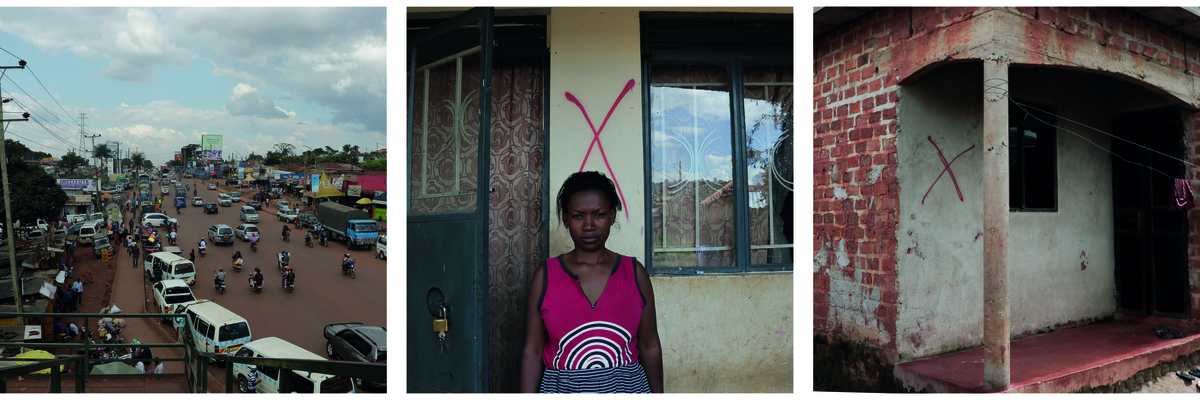Kampala – Jinja Expressway No One Worse Off Project: Implementing The Resettlement And Livelihood Restoration Plan (Rlrp)

The Kampala-Jinja Expressway (KJE) is an infrastructure project to develop a limited access tolled expressway in the central and eastern region of Uganda in East Africa. The project is financed by a consortium including the Government of Uganda, the European Union, Agence Francaise de Développement and the African Development Bank.
The construction of the KJE will bring enormous long-term benefits to the regional, national, and local economies and will help facilitate the better flow of goods and services to the benefit of all. However, there are also risks associated with constructing an expressway through a settled urban community with potentially adverse social, environmental and economic impacts. Safeguards are mitigations measures meant to ensure that no environmental and social harm is done because of a project. Environmental and social benefits should be enhanced further by the safeguard intervention.
The safeguard analysis and mitigation measures for the KJE project have been developed by the Uganda National Roads Authority (UNRA) with the support of Atacama and Earth Systems Consultants. For people that will be displaced, a full Resettlement Action Plan is mandatory under national law and international guidelines. A Resettlement and Livelihood Restoration Plan (RLRP) was prepared outlining procedures and methodologies to ensure that the project meets requirements set by the International Financial Corporation (IFC) Performance standards and AfDB Operational Safeguards.
Project Objectives
By end of the programme, the Right of Way (ROW) of the KJE expressway will be cleared for construction while all affected households and small and micro enterprises in targeted areas will have received support services to enable improved livelihoods, security of tenure and housing for the longer-term market, and neighbourhood incremental upgrading.
Project Outcomes
a) The project runs effectively as supported by a strong managerial and institutional structure, clear feasibility and a thorough inclusive and consultative process.
b) Relocated households and businesses are re-integrated into the broader city and within communities with secure tenure and plans for long term incremental upgrading of their housing.
c) The most vulnerable households are identified and empowered to adapt to the new situation caused by the impact of the KJE construction.
d) Households presently dependent on the informal economy for their livelihood and impacted by the ROW are empowered with new space, skills and finance to either continue their enterprise or adapt to a new opportunity.
e) The sustainable rehabilitation of the Kinawataka wetland by transforming neighbouring communities into the champions of the wetland.
Project Components
This component includes setting up adequate governance structures, finalising list of affected households, setting up of settlements forums and other dialogues structures for awareness and consultation.
- Outcome: to ensure that relocated households and businesses are re-integrated into the broader city and within adjacent communities with secure tenure and plans for long term incremental upgrading.
- Basic assumption and approach: secure tenure, in-situ upgrading, and business relocation plans are agreed between government and community and other stakeholders.
Outcome: to ensure that the most vulnerable households are identified and empowered to adapt to the new situation caused by the impact of the KJE construction. Critically vulnerable households in the ROW will need additional support in the process of relocation. A tailored support programme will be developed for them depending on the household’s circumstances and would be offered the following services:
- Help salvaging materials and transport to the new site;
- Support in the building of an improved structure; and where relevant
- Rental support.
Outcome: to ensure that households - presently dependent on the informal economy for their livelihood and impacted by the ROW - are empowered with new space, skills and resources to either continue their enterprise or adapt to a new opportunity.
Business support services to be provided include business development training and advice, access to microfinance and linkages to supply chain opportunities with corporate and city infrastructure programmes. Traders in need of new skills will be provided with the vocational training necessary to transition into a new market.
Outcome: support the sustainable rehabilitation of the Kinawataka wetland by transforming neighbouring communities into the champions of the wetland. Among issues to be addressed include solid waste and wastewater management and ecosystem services.
Kinawataka wetland management would have the following multiple benefits for the environment and local community:
- To improve the quality of life of residents in surrounding areas;
- To provide livelihood opportunities for the residents;
- To preserve remaining open, green spaces within the city; and
- To rehabilitate the wetlands to enhance critical ecosystem services.

